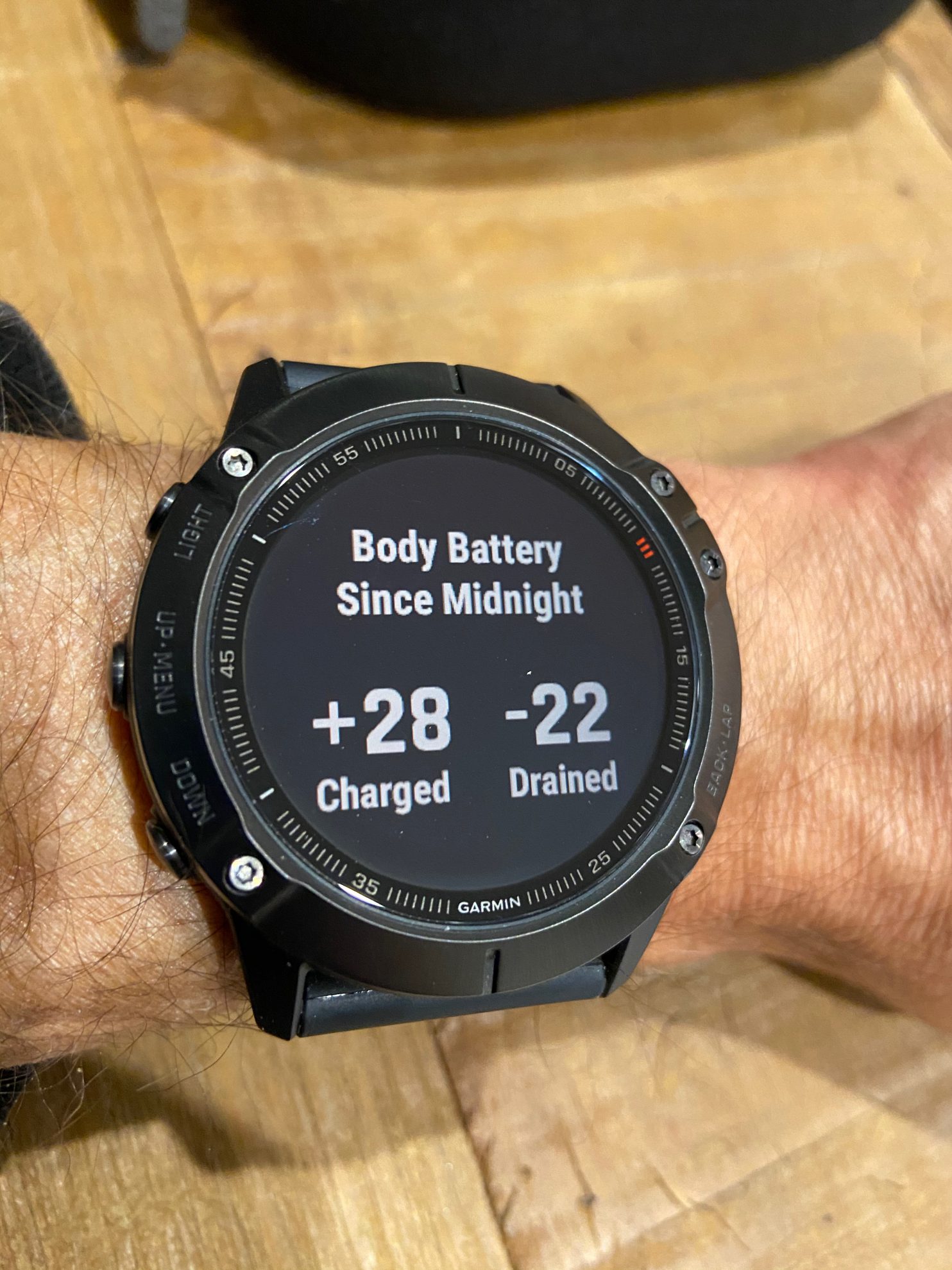The partnership between Garmin and FirstBeat Technologies has yielded a very important performance metric:
Body Battery
First introduced in 2018 in the Garmin Vivosmart line, the measurement of your “Body Battery” is to give you insight into your body’s current capacity based on training load and various indicators of stress and recovery.
Firstbeat provides their own description:
The basic concept revolves around the same concepts of batteries being CHARGED and DRAINED. Now these concepts for any electric car owner are currently in their daily consciousness.
Here’s example of typical Fenix 6 widget for Body Battery taken at 6:36pm.(early evening). Metrics are based around 12 Midnight when the battery measurement cycle begins.

I like the battery analogy since every day begins with an inherited state that needs to be accounted for. However, what’s difficult to determine is the CAPACITY of battery. There are battery charging concepts like “deep charge” that don’t necessarily translate over. Furthermore, it’s interesting to bring the eastern medicine and philosophical notions of Qi. The thinking is that you are born with a certain amount of Qi .
As you know, I’m a fan of looking at health data through a “trending” analysis rather than strictly actioning changes in habits or training based on a “bad/good” day. The graphic below shows a trending 7 day body battery measurement. Training definitely drains your battery and would imagine the amount and intensity of draining of the battery is factored into the calculations of FirstBeat’s Body Battery metric.
In my case, I trained on Nov. 20 and wasn’t fully charged to begin with. I haven’t seen a 100 but did notice the “99” after a few days of rest after the training.

Hopefully from the trend you can see that my battery hasn’t always started out at 100 point capacity. This is due to in part to sleep quality and HRV stress metrics.
Now, would I modify my day to incorporate these body battery metrics? Could I enter a meeting with “Hi, everyone I have a full capacity body battery. What’s your body battery?” It probably would change the dynamics of the meeting and if data wasn’t at least one of the topics, putting a data-driven perspective might kickstart a good discussion around performance.
Next up: Oura Weekly Performance Results – What does it really mean?
